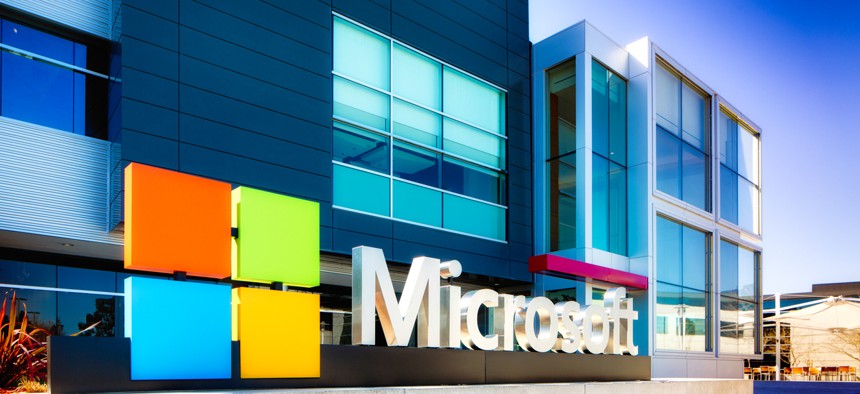Microsoft Joins Space-Focused Threat Intelligence Sharing Community

NicolasMcComber/istockphoto
The company is the newest named founding member of Space ISAC.
Microsoft joined the Space Information Sharing and Analysis Center as a founding member, according to announcements published by both organizations Wednesday expressing their collective aims to help safeguard America’s digital assets beyond Earth.
“Space cybersecurity is relatively unknown territory because we’re approaching and doing some things for the first time,” the center’s Board of Directors Chair and Senior Vice President of Kratos Space Federal Frank Backes said. “[F]ortunately through Space ISAC we have the opportunity to build a foundation for protection from a knowledge pool with deep security expertise.”
ISACs are member-driven organizations encompassing industry, academia, and other non-governmental players that work together to capture information around risks to critical infrastructure. They often receive support from the government and work as a liaison between the public and private sectors. The organization is the United States’ only space-dedicated ISAC.
Space industry insiders announced the ISAC’s formation in 2019.
Since then, those involved have facilitated and participated in multiple exchanges directly with government representatives to expand awareness around threats to the nation’s space infrastructure.
“Space ISAC is actively partnered with the public sector and we have already deployed our threat intelligence platform that is our primary communications tool for collaborating with our members and public sector partners,” Backes told Nextgov in an email Tuesday.
He confirmed that information-sharing platform, deemed a first-of-its-kind, went live in early 2021.
Space ISAC is also part of the Cybersecurity and Infrastructure Security Agency’s Space Systems Critical Infrastructure Working Group, publicly unveiled in May.
Microsoft will be the first hyperscale cloud service provider to join the nonprofit organization.
The company’s Vice President of Mission Systems, Bill Chappell, will represent it on the Space ISAC board of directors. He’ll work alongside experts from multiple founding partners, including, among others, Booz Allen Hamilton, MITRE, Lockheed Martin, Purdue University, Space Dynamics Laboratory, Johns Hopkins University Applied Physics Laboratory, and Northrop Grumman.
This news follows various recent moves Microsoft made to extend its reach and exposure in the space industry. Last year, for instance, the tech giant unveiled Azure Space, articulating its aims to deliver high-speed, low-latency satellite broadband capabilities to incredibly remote environments. And in February, Microsoft revealed plans to connect users on the International Space Station to the Earth, and vice versa, through the cloud via a fresh partnership.
Such ventures create new cybersecurity risks for the company, apparently prompting it to join the information-sharing community.
“The increase in availability and connectivity of space technology increases the surface area of cybersecurity risk and the urgency for collaboration to address the threat,” Tom Keane, corporate vice president for Microsoft Azure Global, wrote in the blogpost. “Microsoft recognizes the importance of navigating these emergent cybersecurity challenges amidst rapid commercial advancements in communications infrastructure, satellite connectivity, and broadband.”
Microsoft was one target of recent, major cyber incidents that it has since attributed to China. Keane didn’t mention that in the release but noted that the company invests over $1 billion annually on cybersecurity “and has a team of more than 3,500 global security experts across 77 countries interpreting and contributing to the insights gained from our advanced engineering and telemetry.”
As an ISAC partner, he said the business looks forward “to sharing [its] progress in ensuring the highest levels of cybersecurity across the universe.”






